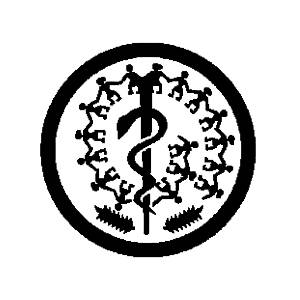Cause Area
Primary Sectors
Secondary Sectors
Financials
-
2020
Total IncomeRs.184,372,002Total ExpensesRs.172,482,095Non Program ExpensesRs.51,225,282Program ExpensesRs.121,256,813Tip: Click on any value above to exclude it. -
2021
Total IncomeRs.192,932,231Total ExpensesRs.172,986,824Non Program ExpensesRs.46,813,407Program ExpensesRs.126,173,417Tip: Click on any value above to exclude it. -
2023
Total IncomeRs.199,231,677Total ExpensesRs.199,138,070Non Program ExpensesRs.53,254,805Program ExpensesRs.145,883,265Tip: Click on any value above to exclude it.
Geographies Served
Programs
-
Training
StateStates
Chhattisgarh
Conducts various training programmes for health workers serving the rural communities of Chhattisgarh, including:
Village Health Worker Training
Senior Health Worker Training
School of Nursing
School of Paramedical Courses
Dai Training
DNB in Family Medicine -
Community Health
StateStates
Chhattisgarh
Increasing the Effectiveness of Primary Care in a Hard-to-Reach Area. In a group of eight villages, we launched the community health program, often known as the "Village Health Programme." This scheme is now being implemented in 70 tribal communities spread over four clusters in the Bilaspur district's Kota and Lormi blocks. Many of these settlements lack access to all-weather roads since they are situated in woods or on the edge of forests.
Impact Metrics
-
New Patients Diagnosed for Cancer
Year-wise Metrics- 2019-20 483
- 2020-21 441
Leadership Team
-
Ishani Joshi
-
Dr. Anurag Bhargava
Vice President
-
Dr. Raman Kataria
Secretary
Registration Details
-
PAN Card
AAATJ0614R
-
Registration Number
S-30035 of 1996
-
CSR Form 1
Not Available
-
80G
AAATJ0614RF20094
-
12A
AAATJ0614RE19965
-
FCRA
327480001
About
-
Headquarters
Delhi, Delhi
-
Since
1996
Impact
JSS has provided care to over 3,00,000 patients from more than 2,500 villages, conducted over 7,00,000 consultations, admitted over 23,000 patients for serious illnesses, and performed over 35,000 surgical procedures.
Vision and Mission
To develop a low-cost and effective health program that provides both preventive and curative services in the tribal and rural areas of Bilaspur and surrounding areas of Chhattisgarh in central India, ensuring access to healthcare is not denied to anyone due to lack of money or discrimination.
Political & Religious Declarations
-
Political Affiliation
-
Religious Affiliation
Location
-
Headquarters
Village & PO Ganiyari Bilaspur District, Ganiyari, Chattisgarh, India, 495112
Directions, Delhi, Delhi -
Offices in Cities
Other Details
-
Type
Non-profit
-
Sub Type
Society
Website
Technology Adoption
-
SOC 2 Compliant
No
-
Financial Management
-
Beneficiary Management



